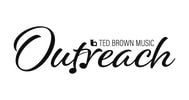Why Music Therapy?
Music is therapeutic -- many of us listen to music as a pick-me-up, some of us play music in groups that lift our souls. What is music therapy and why is it different from experiencing music as therapeutic?
First and foremost, music therapy is based on the therapeutic relationship between a board-certified music therapist and a client. There are specific clinical goals to address through using elements of music to enable meaningful therapeutic responses. Music therapists and their clients will build therapeutic rapport by engaging in a music-based interactions so that the clients are able to
Goals in music therapy range broadly.
from physical goals such as being able to walk more stably (due to their physical impairment) to managing their
Research supports that experiencing music is a brain version of whole body workout and catalyzes awesome responses. Music and neuroscience research has started to discover the positive impact of music on the areas of the brain that are related to non-musical, functional skills.
First and foremost, music therapy is based on the therapeutic relationship between a board-certified music therapist and a client. There are specific clinical goals to address through using elements of music to enable meaningful therapeutic responses. Music therapists and their clients will build therapeutic rapport by engaging in a music-based interactions so that the clients are able to
Goals in music therapy range broadly.
from physical goals such as being able to walk more stably (due to their physical impairment) to managing their
Research supports that experiencing music is a brain version of whole body workout and catalyzes awesome responses. Music and neuroscience research has started to discover the positive impact of music on the areas of the brain that are related to non-musical, functional skills.
